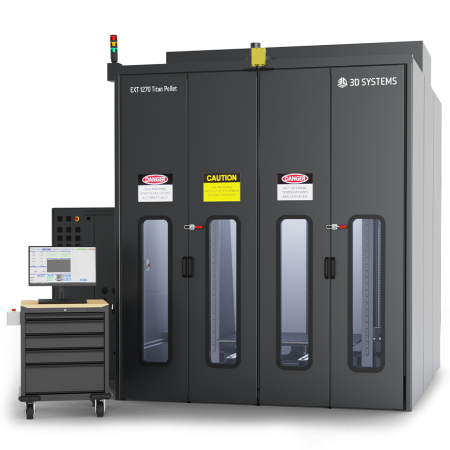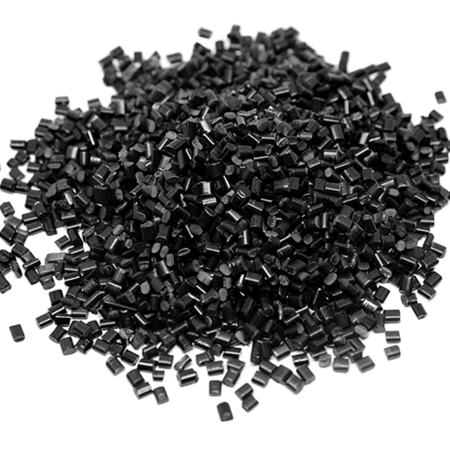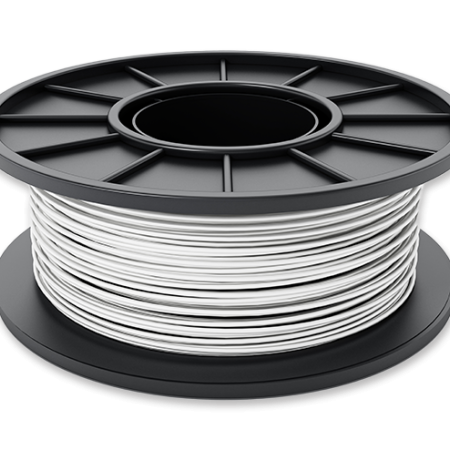Lindar Corporation, headquartered in Baxter, Minnesota, is a full-service thermoforming company serving a wide range of industries including food, agriculture, healthcare, off-road and recreational power sports, lawn and garden equipment, and construction. Since its founding in 1993, Lindar has grown into a 205,000-square-foot facility with 175 employees and offers both thin- and heavy-gauge thermoforming, rotational molding (rotomolding), and a full suite of support services including design, engineering, prototyping, and assembly.
A Lindar engineer works on a CAD model while monitoring a print in progress on the company’s EXT 1270 Titan Pellet 3D printer.
As part of its commitment to staying on the cutting edge of manufacturing technology, Lindar has been using additive manufacturing (AM) for several years to support product development. In early 2023, Chuck Grant, Lindar’s Design and Innovation Manager, began researching large-format 3D printers that could produce full-size prototypes and fixtures in one piece, eliminating the need for multipart assembly and post-processing. The goal was to speed up development cycles and improve flexibility in both design and manufacturing.
Traditional approaches to tooling and fixture production, such as machined aluminum molds, often required 8 to 12 weeks to complete, creating a bottleneck for new product launches and custom jobs. Many large-format 3D printers on the market rely on filament, which brought high material costs and slow print speeds, making them unsuitable for Lindar’s needs. The company had also evaluated binder jetting systems for producing thermoforming molds, but those were ultimately ruled out due to high equipment costs and the impractical weight of the resulting tools.
In August 2023, Lindar installed a 3D Systems EXT 1270 Titan Pellet 3D printer. With its generous build volume, heated chamber, and pellet extrusion system, the EXT 1270 quickly proved its value by enabling faster, more cost-effective production of prototype molds, tooling, and fixtures. While ready-to-use molds can be produced on EXT Titan Pellet systems, Lindar chooses to print faster using larger nozzles, and then machine on their existing CNC equipment for a smooth finish.
A thermoforming mold print underway at Lindar on the 3D Systems EXT 1270 Titan Pellet printer. The mold will be machined on external equipment prior to use.
“We are able to offer a price that is one-third of what we used to because we are not using the expensive ren board and having to machine all sides. We can now print the mold oversized and machine a finish path. Because of the printing process the backsides are done and there’s so much less material to remove,” said Grant.
Building on the momentum of their success with the EXT Titan Pellet system, Lindar also evaluated options to replace their aging powder-based printer. They ultimately selected a 3D Systems ProX® SLS 6100, which is now used for producing thin-gauge thermoforming molds and high-detail fixtures.
Since implementing these additive systems, Lindar has seen dramatic improvements in both speed and capability. Lead times for prototype tooling have been reduced by more than 80%, dropping from 8–12 weeks to just 1–2 weeks. This newfound agility has helped Lindar win new customers who value the ability to receive full-size thermoformed prototypes on short notice.
Clockwise from front: A 3Dprinted and machined CF-PC thermoforming mold, a 3D printed ABS prototype of a formed part, and a 3D printed ABS trim fixture, all produced on 3D Systems’ EXT 1270 Titan Pellet system.
Grant shared that the company has also created a new revenue stream by offering 3D printed prototype tooling to clients. “We can now offer a start to finish solution for people. We can take their design, or create one for them, rapidly make and run prototype tooling and parts, plus bring it altogether in production,” he added.
While Lindar still relies on traditional machined aluminum molds with integrated cooling channels for high-volume production, the flexibility and speed of their AM systems have allowed them to dramatically shorten development timelines. Many of the prototypes printed on the EXT 1270 go on to serve as bridge tools for production while aluminum molds are fabricated. Lindar also now prints all trim fixtures, along with a variety of other components such as cooling fixtures and stacker tooling for their thin-gauge production line.
The EXT 1270 Titan Pellet has become a vital asset for the company, with its print schedule fully booked for the next month and new projects continuing to roll in. Additive manufacturing is now a core part of Lindar’s innovation strategy, one that enhances their competitiveness, reduces lead times, and supports continued growth in a dynamic marketplace.


